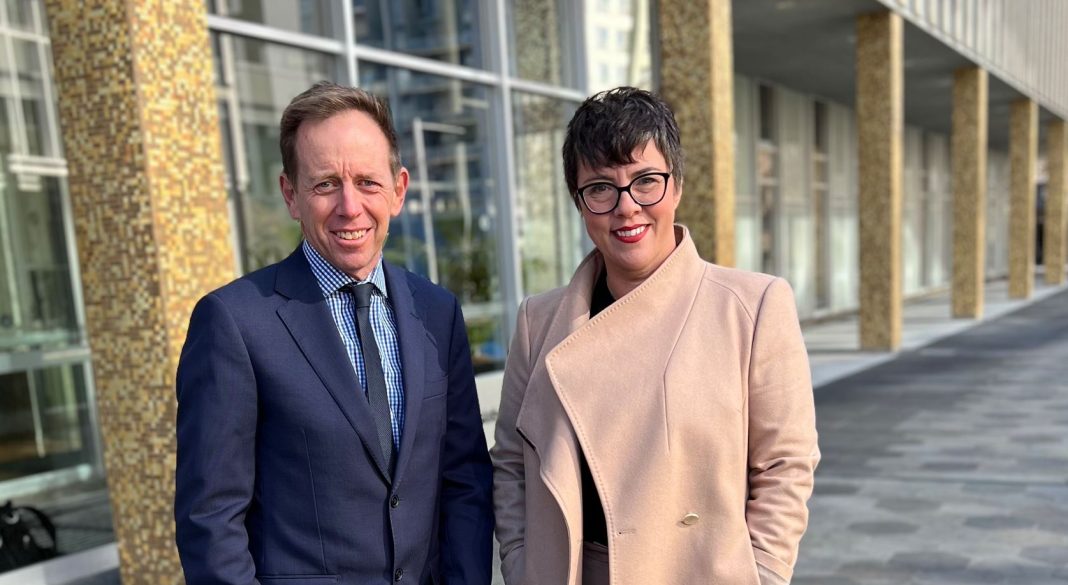The proceeds of crime will be used to support victims of crime and to prevent crime, Attorney-General Shane Rattenbury said today, announcing this year’s disbursement of funds from the ACT Government’s Confiscated Assets Trust (CAT).
The Trust redistributes confiscated proceeds of crime, other criminal assets, and unexplained wealth assets recovered under the Confiscation of Criminal Assets Act 2003, “to address the impact of crime on the community”, Mr Rattenbury said.
This round focuses on access to justice and supporting victims of crime, including a handbook for sexual assault services, a witness assistance program, and liaison officers for First Nation people and people from multicultural communities.
“The theme is really about supporting those in the criminal justice system who end up as victims of crime,” Mr Rattenbury said. “They don’t want to be there – but they find themselves in a system that can be difficult to understand if you’re not familiar with it. Most people are not. They find it disempowering at times. Each of these areas of funding are very much designed to support them to feel empowered, to feel supported, and to feel like they have a voice in the process, and clearly understand it.”
Projects funded in this round include:
- Expansion of the Witness Assistance Scheme: $404,346
The Witness Assistance Scheme, run by the Office of the Director of Public Prosecutions (ODPP), acts as a bridge between prosecutors and vulnerable witnesses and their family members. It provides support and information to vulnerable witnesses to ensure they can participate in court proceedings. The ODPP will use the funding to employ three more staff for a year.
“This funding lifeline will inject much-needed resources into the witness support services at the ACT DPP,” Victoria Engel SC, Director of Public Prosecutions, said.
“Historically, the WAS scheme has operated at significantly lower levels compared to the WAS support available in DPPs in other jurisdictions. WAS is an integral part of the DPP – an essential frontline service to ensure witnesses and victims are given the support they need from within the DPP to navigate the criminal justice system. This includes access to information on how their matter is proceeding and what to expect through the Court process. A well-resourced WAS gives witnesses and victims agency from within the DPP…
“This funding will help plug an immediate gap, and will assist us to better meet our commitment to providing a trauma-informed service to witnesses and victims in the ACT. A stronger WAS allows the DPP to not only meet its obligations to witnesses and victims, but also to ensure it is engaging effectively with external victim support services in the ACT.
“It is of vital importance that we build an effective WAS in the ACT. The current short-term funding will go some way to providing an immediate need. I look forward to continuing working with the ACT Government to ensure victims and witnesses who come into contact with my office are given the support necessary.”
Legal Aid ACT: $369,000
Three Aboriginal and Torres Strait Islander and Culturally and Linguistically Diverse client liaison officers will provide targeted support to vulnerable members of those communities.
Liaison officers provide a bridge between the community and lawyers, Mr Rattenbury explained. “It does improve their access to justice; these are often people who won’t really want to come forward and won’t seek out the support; they feel distanced from the legal system. So, making it easier and building that bridge is very important.”
- Extension of Embedded Prosecutor Initiative: $107,000
A senior prosecutor will continue to work with the ODPP’s Sexual Assault and Child Abuse Team (SACAT) for longer, providing expert legal advice before charges are formally filed, and supporting the implementation of the new Threshold to Charge policy.
- Women’s Legal Centre: $30,000
Developing and distributing a Sexual Assault Legal Service handbook, providing information and resources to sexual assault survivors navigating the criminal justice system.
“The criminal justice process can provide an avenue to address, redress, and respond to people who have been affected by sexual violence,” Women’s Legal Centre CEO Elena Rosenman said. “But what we find is that too often, people are making the decision about whether or not to engage with police, or continuing to engage in criminal justice procedures, based on insufficient advice and insufficient information.
“So, the handbook that’s been funded will provide a really important bridge to the services that exist in the ACT.
“What’s important about funding resources like this one is that they will be independent, they will be accessible, and they will be private. The handbook will be online, which means that people will be able to reach out to the information and get it at the time that they need it without necessarily having to ask someone to help first.”
Contact Sexual Violence Legal Services on 6257 4377 for help.
“Access to justice is a fundamental right,” Mr Rattenbury said. “This investment reflects our commitment to ensuring that all Canberrans have equal opportunity to navigate the legal system. We are proud to support these important initiatives that will make a real difference in the lives of many.”



